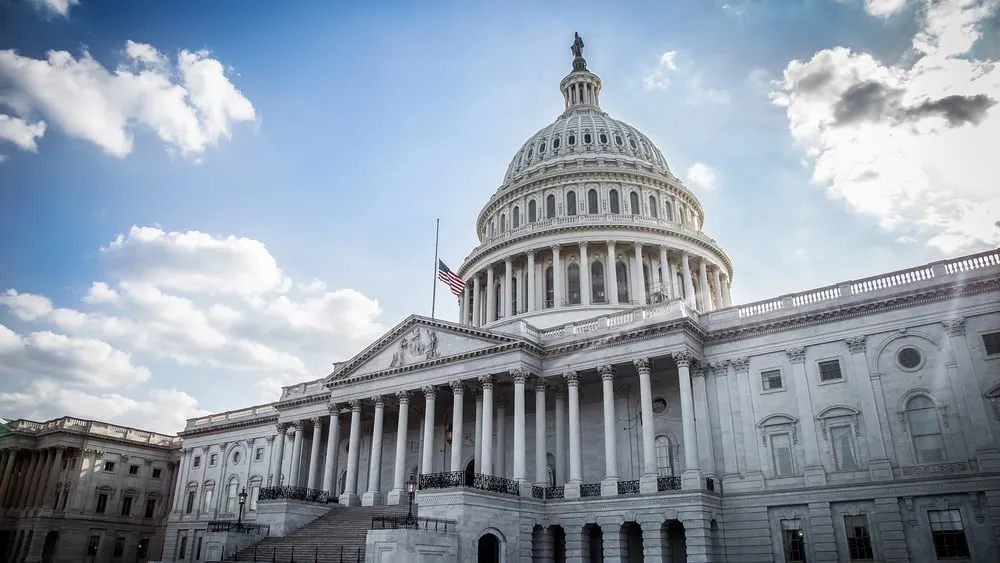A joint hearing on Capitol Hill sought to measure the regulatory gaps in crypto on Wednesday. The criteria for determining whether a token should be considered a security or a commodity highlighted how wide those gaps have been.
The topic has been a sticking point for years, and a puzzle piece for determining to what degree the Commodity Futures Trading Commission (CFTC) or the Securities and Exchange Commission (SEC) have authority over the digital assets industry.
During the hearing, Republican and Democratic lawmakers disagreed about whether new regulation was needed to address the classification of digital assets. Rep. Dusty Johnson (R-SD) said a lack of clarity within the existing law has been holding back innovation in the marketplace for too long.
“I know this town loves kicking the can down the path,” he said. “But there are times where it's just clear, even to Congress, that action is appropriate and needed.”
Johnson honed in specifically on the Howey Test, the SEC’s four-pronged assessment for determining whether an asset, such as a cryptocurrency, should be considered a security.
A core element of the Howey Test looks for a reasonable expectation that profits are derived from the efforts of others—that a group of individuals, such as a token’s developers, has a sizable impact on an asset's overall price.
Johnson claimed that Congress could help regulators by clearing up how decentralization plays a role, providing the CFTC and SEC with “particular triggers” that delineate when an asset can shift from being a security to a commodity, something the SEC’s former Director of Corporate Finance William Hinman has said is possible.
During the hearing, Matthew Kulkin, a partner at the law firm WilmerHale, said that it’s challenging to identify a particular inflection point for when that may happen.
“It's sort of easy to draw out the two ends of the spectrum, in terms of a token being offered to raise capital versus something that's highly commoditized,” he said. But finding a dividing line between the two is challenging, Kulkin added.
For Ethereum—crypto’s second-largest token by market capitalization—leaders of the SEC and CFTC have expressed dueling opinions about whether the token should be considered a commodity or security.
While SEC Chair Gary Gensler hasn’t directly labeled Ethereum a security—he refused to answer questions directly posed by Rep. Patrick McHenry (R-NC) last month—he said earlier this year that “everything other than Bitcoin” falls under securities laws.
But the classification of tokens isn’t all that important when it comes to regulating crypto, suggested the Subcommittee on Digital Assets’ ranking member Rep. Stephen Lynch (D-MA).
“I do understand jurisdictional questions have been raised at times over whether crypto tokens are securities or commodities and whether the primary regulator of those tokens could be the SEC or CFTC,” he said. “I worry we might be asking the wrong questions, however, and we risk feeding into industry-fueled narratives about a turf war between these two agencies.”
Lynch argued that concerns raised by digital asset advocates about regulatory ambiguity are actually “masked non-compliance with existing laws,” adding a new regulatory structure would undermine existing regulation.
“I encourage my colleagues to not get lost in a debate over whether individual tokens are securities or commodities,” Lynch said. “Instead, we should take a step back and examine the intermediaries that facilitate these tokens.”

